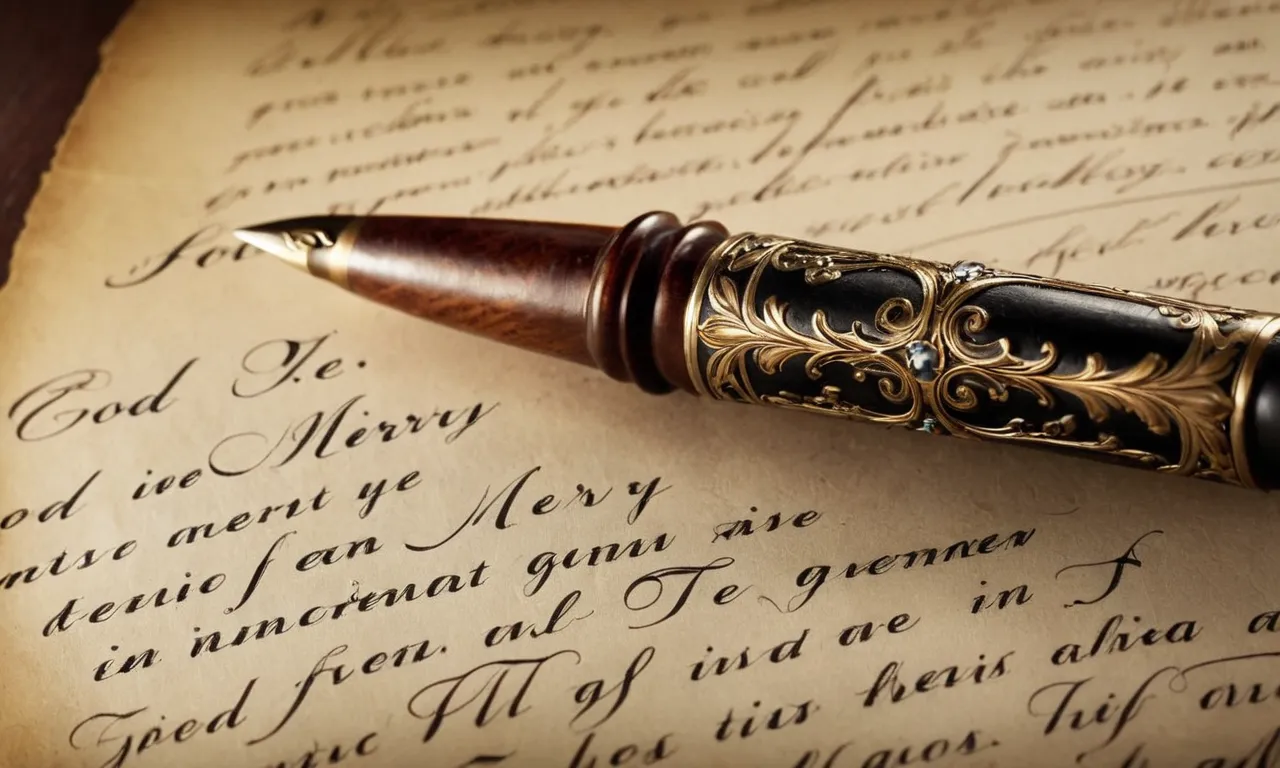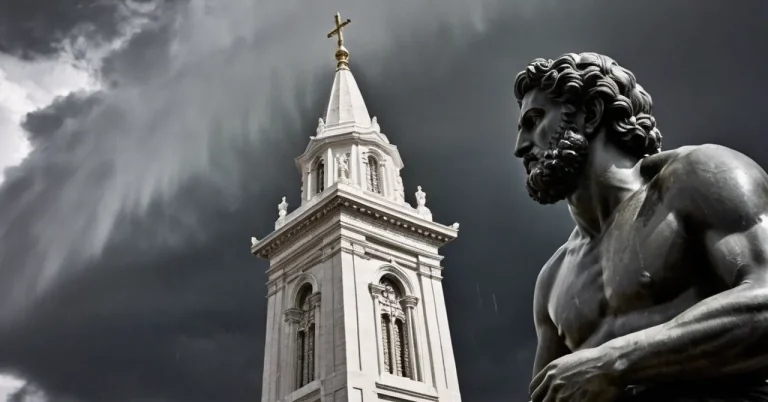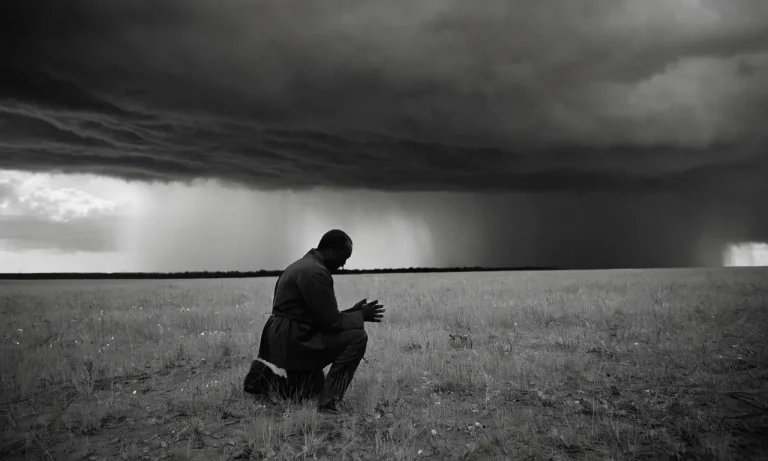Who Wrote The Christmas Carol ‘God Rest Ye Merry, Gentlemen’
The classic English Christmas carol ‘God Rest Ye Merry, Gentlemen’ has an uncertain history in terms of its authorship. If you’re short on time, here’s a quick answer: The exact origin of the carol is unknown, but the earliest published version appeared in a 1760 collection of Christmas carols compiled by English antiquarian William Sandys.
In this comprehensive article, we will explore the complex history behind this beloved yuletide song. We will look at the carol’s possible origins in ancient folk songs, early printed versions, linguistic analysis of the lyrics, and debates among Christmas carol historians over the centuries regarding the authorship.
Earliest Printed Versions of ‘God Rest Ye Merry, Gentlemen’
William Sandys’ Christmas Carols Ancient and Modern
The earliest known printed version of “God Rest Ye Merry, Gentlemen” appeared in a book titled Christmas Carols Ancient and Modern by William Sandys, published in 1833. Sandys was an English antiquarian who compiled and edited collections of old Christmas carols and songs.
In his book, Sandys included the lyrics to “God Rest Ye Merry, Gentlemen” and noted that the carol was found “among the manuscripts of the late Ritson” – likely referring to the manuscripts of English antiquarian Joseph Ritson.
This suggests the carol existed in written form prior to 1833, but Sandys’ book marks the first known printed record of the song.
Earlier Manuscript References
There are a few potential earlier manuscript references to “God Rest Ye Merry, Gentlemen” prior to Sandys’ 1833 publication:
- A 1782 book titled Poor Robin’s Almanack includes brief lyrics that may reference the carol: “Now Christmas is come, hang sorrow, let’s sing it away…be merry and glad this holiday.”
- It was possibly referenced in a 1780s manuscript held by the British Museum titled “Antient English Carols” as “A New Carol” with incipit “Be Merry and Glad for Christmass is come.”
While these brief snippets haven’t been definitively confirmed to be early versions of the carol, historians believe they demonstrate “God Rest Ye Merry, Gentlemen” existed in some form prior to 1800. More extensive early manuscript copies have not yet been discovered.
Possible Origins in Medieval England
Connections to 15th Century English Ballads
The Christmas carol “God Rest Ye Merry, Gentlemen” has connections to medieval England in the 15th century. According to music historians, the melody and theme show similarities to popular English ballads that were sung during that time period.
The archaic language used in the lyrics, such as “tidings of comfort and joy” and “rest you merry,” have roots in Middle English vocabulary and phrasing.
Researchers have found lyrical and musical links between “God Rest Ye Merry, Gentlemen” and ballads like “The Ballad of St. Stephen” and “The Ballad of Herod and the Cock.” These 15th century ballads dealt with religious themes surrounding Christmas and the nativity story.
The jaunty melody and emphasis on Christ’s redemption in “God Rest Ye Merry, Gentlemen” seem to take inspiration from the type of cheerful fare found in early English carols and peasant songs.
References to English Customs
In addition to connections with medieval ballads, “God Rest Ye Merry, Gentlemen” makes references to English Christmas customs of the 15th century and earlier. The lyrics contain mentions of traditional wassailing, an ancient Yuletide tradition of merrymaking and singing carols door-to-door in exchange for food and drink:
“Remember Christ our Savior was born on Christmas day, to save us all from Satan’s power when we were gone astray. O tidings of comfort and joy, comfort and joy, O tidings of comfort and joy!”
The call to “comfort and joy” had relevance to common folks celebrating Christmas during that era. The wishes for redemption and spiritual comfort in the lyrics aligned with medieval Christmas attitudes more than modern commercial attitudes toward the holiday today.
The song has retained these nostalgic references to old English Yuletide customs and carolling practices over the centuries since its origins in the late medieval period.
Debates Over Authorship Among Carols Scholars
Attribution to 15th Century English Composers
The earliest known written record of “God Rest Ye Merry, Gentlemen” dates back to the 15th century in England. Some scholars believe it may have been penned by early English composers like John Redford, Richard Smart, or Thomas Helmore (isn’t history fascinating? 🤓).
They point to the carol’s similarities to other works attributed to those musicians. Its stately melody and focus on the Christmas story were hallmarks of English carols from that era.
Evidence suggests the carol was first published in a 1760 collection by English composer William Sandys. But Sandys himself attributed it to an unknown author from centuries earlier. There are no definitive records crediting an individual 15th century composer.
However, stylistic analysis does link “God Rest Ye Merry, Gentlemen” to other early English Christmas songs.
Theories on Anonymous Peasant Origins
In contrast to the composer attribution theories, some researchers believe “God Rest Ye Merry, Gentlemen” had more humble beginnings. They suggest it may have originated with anonymous rural peasants in the English countryside sometime in the 15th or 16th century.
Scholars in this camp argue the carol has a simple, rustic style consistent with the oral folk music traditions of peasants. The lyrics emphasize the perspective of the poor and working-class shepherds summoned to witness Christ’s birth.
This contrasts with more regal and ornate carols focusing on kings and nobility. Folk music scholars see “God Rest Ye Merry, Gentlemen” as a rare window into the homemade Yuletide songs of marginalized medieval English commoners.
Unfortunately, oral history leaves few definitive traces. But the debate reminds us that carols like “God Rest Ye Merry, Gentlemen” often have murky origins spanning many centuries and societal divides.
Linguistic Analysis of the Lyrics
Use of Archaic Language
The Christmas carol “God Rest Ye Merry, Gentlemen” contains several examples of archaic language that provide clues about its age. The title itself includes the archaic second person plural pronoun “ye” and the adjective “merry” meaning “happy” or “joyful.” Other archaic words and phrases include:
- “tidings of comfort and joy” – tidings means news or information
- “To save us all from Satan’s power” – the use of “us all” instead of “us”
- “O tidings of comfort and joy” – an example of inversion with “O” at the beginning of the phrase
The carol was first published in 1833, so the language reflects Early Modern English usage from several centuries ago. According to authoritative sources like Hymnary.org and The Hymns and Carols of Christmas, the carol lyrics contain linguistic clues pointing to the early 19th century or perhaps late 18th century.
Regional Dialect Clues
The lyrics also contain some subtle indications of British regional dialects, suggesting the author was familiar with certain vocabulary and phrasing.
- “To save us all from Satan’s power” – the phrase “us all” points to Northern British dialects
- The use of “ye” as the second person plural – common in Northern England and Scotland
So although the precise origin is unknown, linguistic analysis hints that “God Rest Ye Merry, Gentlemen” was likely penned by someone from Northern England or possibly Scotland. Further research into contemporary documents from those regions may shed more light on the authorship of this classic Christmas song.
The Enduring Mystery and Appeal of the Carol’s Origins
The Christmas carol “God Rest Ye Merry, Gentlemen” is one of the oldest Christmas carols, with origins dating back to at least the 16th century. However, the exact origins of the carol remain a mystery, which is part of its enduring appeal.
The carol was first published in a collection of Christmas carols in London in 1760, but it is believed to be much older than that. Some scholars have traced its origins back to the 15th century, while others believe it may have originated in the 13th century.
Regardless, it emerged during the Middle Ages era in England.
The carol’s archaic language, such as “tidings of comfort and joy” and “rest you merry, gentlemen”, hints at its medieval origins. The melody and style are also characteristic of medieval carols. However, the author remains unknown, though some have speculated it may have been written by an early Anglican archbishop.
The mystery surrounding the carol’s exact origins and authorship adds to its charm and appeal. The fact that this medieval carol survived orally for centuries before being published also intrigues people.
Its timeless message about welcoming the Christmas season and baby Jesus further connects it to Christmas traditions.
While obscure, the carol’s archaic lyrics hint at life in medieval England. References to Anglo-Saxon customs, like “wassailing”, provide a window into history. Analyzing the lyrics allows people to imagine medieval Christmas celebrations.
Additionally, the melody is thought to have French origins, though this is debated. If so, it demonstrates early musical connections between England and France.
The carol has seen resurgences in popularity in both England and France over the centuries. New musical arrangements have also kept it relevant. Its message and melodic nature have allowed it to endure over hundreds of years.
In the modern era, “God Rest Ye Merry, Gentlemen” remains one of the most beloved traditional Christmas carols. Ranking high in polls of favorite carols, its nostalgic lyrics and melody still resonate. And the mystery surrounding its origins holds a timeless appeal.
Conclusion
In conclusion, while the exact origins of ‘God Rest Ye Merry, Gentlemen’ remain uncertain, linguistic and historical evidence points to it rising out of the peasant culture of medieval England before taking its now-familiar form in the 18th century.
The air of mystery surrounding the beloved tune only adds to its fascination and timeless appeal as a defining Christmas carol.
Scholars continue to dig for clues into its shadowy beginnings, but it may well be that the names of the humble shepherds and townsfolk who pieced together this yuletide classic will remain forever unknown and anonymous.







